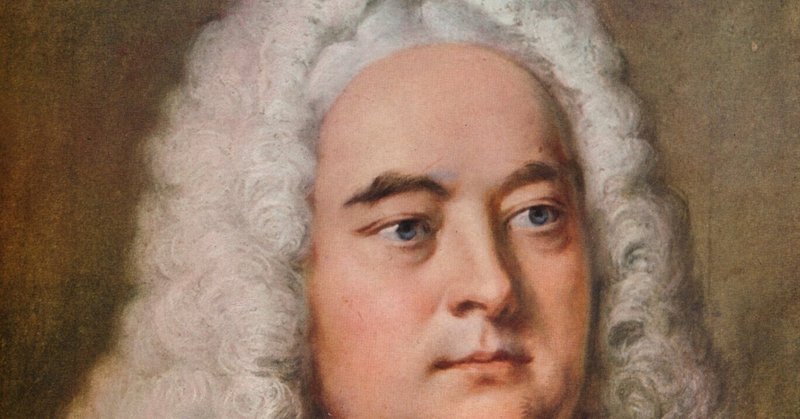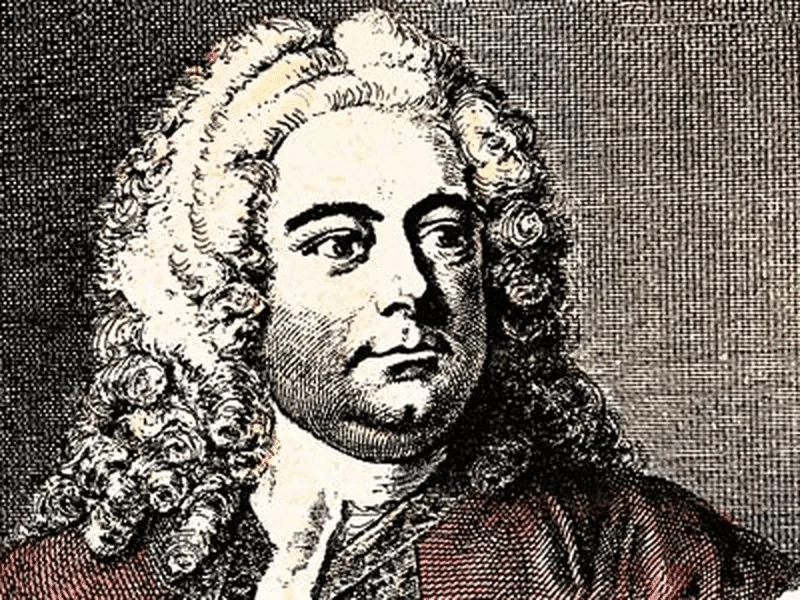
ヘンデルのオラトリオ「メサイア」
ヘンデルのオラトリオ「メサイア」について、記事を書いてみました。長めの記事ですが、専門的な知識は必要ありません。この素晴らしい音楽作品の魅力をお伝えできればと思います。
オラトリオとは何でしょうか。オペラと同じように、歌と音楽で物語を表現する形式ですが、違いは舞台装置や衣装、演技などがなく、純粋に音楽だけで聴かせるということです。オラトリオはもともと、教会で行われる礼拝の一部として発展したもので、その内容は聖書の物語や教義に基づいています。キリスト教では、春の数十日間はキリスト受難の期間とされ、享楽的な楽しみは慎まれます。しかし、人間ですから、華やかで劇的な音楽を聴きたい気持ちもありますよね。そこで、宗教的なテーマであれば罪にならないだろうという考えから、オペラに代わる音楽劇としてオラトリオが生まれたのです。
オラトリオの中でも最も有名な作品が、ヘンデルの「メサイア」です。ヘンデルはドイツ生まれの作曲家ですが、イギリスに移住して活躍しました。彼はオペラや器楽曲も多く作りましたが、晩年にはオラトリオに力を注ぎました。「メサイア」はその代表作で、1741年に作曲されました。この作品は、キリストの降誕から受難、復活までを歌っています。有名な「ハレルヤ」の合唱はこの曲からきています。「ハレルヤ」とはヘブライ語で「神を讃えよ」という意味です。この合唱はキリストの復活を祝う場面で歌われますが、その壮大さと感動は聴く者を圧倒します。
「メサイア」は英語で歌われますが、その言葉は聖書から引用されたものです。つまり、ヘンデル自身は物語を創作したわけではありません。彼がしたことは、その言葉に音楽をつけることです。しかし、それだけではありません。彼は音楽で言葉の意味や感情を表現しました。例えば、「水よりも濃く」(Thicker than water)というアリアでは、キリストの血が人々の罪を洗い流すことを歌っていますが、その音楽は水の流れを模したように滑らかで美しいです。「羊飼いたちは野原にいた」(There were shepherds abiding in the field)というレチタティーヴォでは、羊飼いたちが天使からキリスト降誕の知らせを受ける場面を歌っていますが、その音楽は突然高く跳ね上がったり低く落ちたりして驚きや喜びを表現しています。
「メサイア」には独唱や合唱だけでなく、オーケストラも重要な役割を果たしています。オーケストラは歌に対して単に伴奏するだけでなく、時には歌と対話したり、時には物語の背景や雰囲気を描いたりします。例えば、「死の影の谷を歩くときも」(Yea, though I walk through the valley of the shadow of death)というアリアでは、オーケストラが暗く重い音色で死の恐怖を表現しています。「われらは羊のように迷い」(All we like sheep have gone astray)という合唱では、オーケストラが羊のように跳ね回る音楽で人々の愚かさを表現しています。
「メサイア」は長い作品ですが、その中には様々な感情や情景が描かれています。聴く者は音楽によって物語に引き込まれ、キリストの苦しみや栄光を共に体験します。ヘンデルは音楽で神の愛と人間の救いを伝えました。それは今も変わらず、私たちの心に響きます。
「メサイア」は多くの演奏家や団体によって録音されていますが、私がおすすめするのは、リヒター指揮ロンドン・フィルハーモニー管弦楽団と合唱団の演奏です。リヒターはバッハの作品演奏の大家として知られていますが、ヘンデルも得意としていました。彼はヘンデルの音楽を構築的で力強く壮麗に演奏しました。この演奏では、英語の言葉とイタリア様式の音楽が見事に調和しています。独唱、合唱、オーケストラともに、この曲にゆかりの深いイギリスのメンバーだけあって、たいへんな熱演です。特に「ハレルヤ」の合唱は圧巻です。この演奏を聴けば、「メサイア」の素晴らしさが分かるでしょう。
以上、ヘンデルのオラトリオ「メサイア」について紹介しました。この記事が皆さんの興味を引くきっかけになれば幸いです。「メサイア」はクリスマスや復活祭などの季節によく聴かれますが、一年中楽しめる音楽です。ぜひ一度聴いてみてください。
Handel's oratorio "Messiah"
I wrote an article about Handel's oratorio ``Messiah''. This is a long article, but no specialized knowledge is required. I would like to convey the charm of this wonderful piece of music.
What is an oratorio? Like opera, it uses songs and music to express a story, but the difference is that there are no stage sets, costumes, or acting, and the audience listens to the music purely. Oratorios originally developed as part of church services and are based on Biblical stories and doctrines. In Christianity, the first few days of spring are considered a period of Christ's crucifixion, and hedonistic pursuits are discouraged. However, as humans, we also have a desire to listen to gorgeous and dramatic music. Therefore, the oratorio was born as a musical drama to replace opera, based on the idea that it would not be considered a crime if it had a religious theme.
The most famous oratorio is Handel's Messiah. Handel was a German-born composer who moved to England and became active. He also composed many operas and instrumental pieces, but in his later years he concentrated on oratorio. "Messiah" is his masterpiece, composed in 1741. This work sings about Christ's birth, passion, and resurrection. The famous "Hallelujah" chorus comes from this song. "Hallelujah" means "praise God" in Hebrew. This chorus is sung during scenes celebrating the resurrection of Christ, and its grandeur and emotion overwhelm the listener.
"Messiah" is sung in English, but the words are taken from the Bible. In other words, Handel himself did not create the story. What he did was set the words to music. But that's not all. He expressed the meaning of words and emotions through music. For example, in the aria "Thicker than water," the song sings about the blood of Christ washing away people's sins, and the music is smooth and beautiful, imitating the flow of water. In the recitative ``There were shepherds abiding in the field,'' the shepherds receive the news of Christ's birth from an angel, but the music suddenly jumps high and then drops low. It expresses surprise and joy.
In addition to the soloists and chorus, the orchestra also plays an important role in "Messiah." The orchestra not only provides accompaniment to the song, but also sometimes interacts with the song and sometimes depicts the background and atmosphere of the story. For example, in the aria "Yea, though I walk through the valley of the shadow of death," the orchestra uses dark and heavy tones to express the fear of death. In the chorus, "All we like sheep have gone astray," the orchestra hops around like sheep, expressing the foolishness of the people.
``Messiah'' is a long work, but it depicts a variety of emotions and scenes. Through the music, listeners are drawn into the story and experience together the sufferings and glory of Christ. Handel used music to convey God's love and human salvation. It still resonates with us today.
"Messiah" has been recorded by many musicians and groups, but I recommend the performance by the London Philharmonic Orchestra and choir conducted by Richter. Richter is known as a great performer of Bach's works, but he was also good at Handel. He played Handel's music in a structured, powerful and magnificent manner. This performance perfectly combines English words and Italian style music. The soloists, chorus, and orchestra performed with great enthusiasm, as the members were all from the UK and have a deep connection to this piece. The chorus of "Hallelujah" is especially impressive. If you listen to this performance, you will understand the greatness of "Messiah".
I have introduced Handel's oratorio "Messiah" above. I hope this article sparks your interest. "Messiah" is often heard during seasons such as Christmas and Easter, but it is music that can be enjoyed all year round. Please give it a listen.

よろしければサポートお願いします! いただいたサポートはクリエイターとしての活動費に使わせていただきます!

